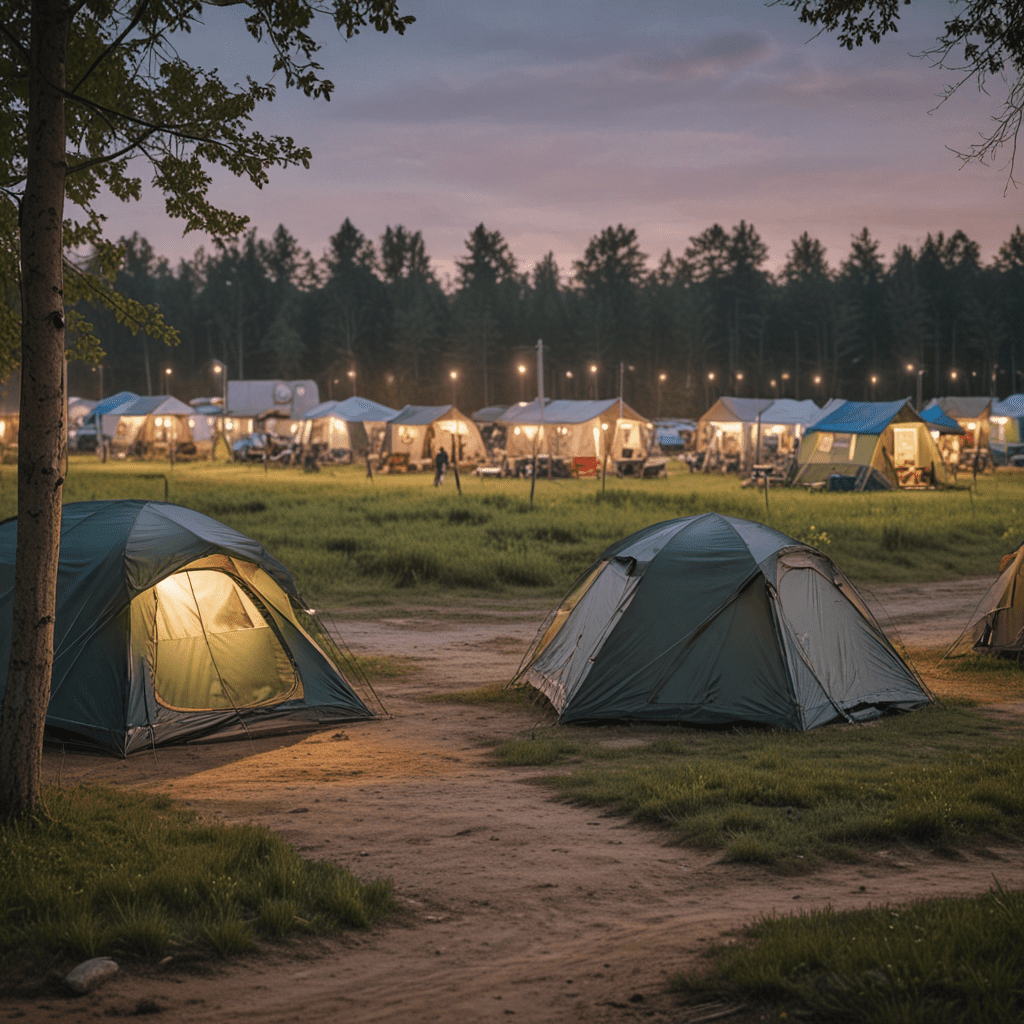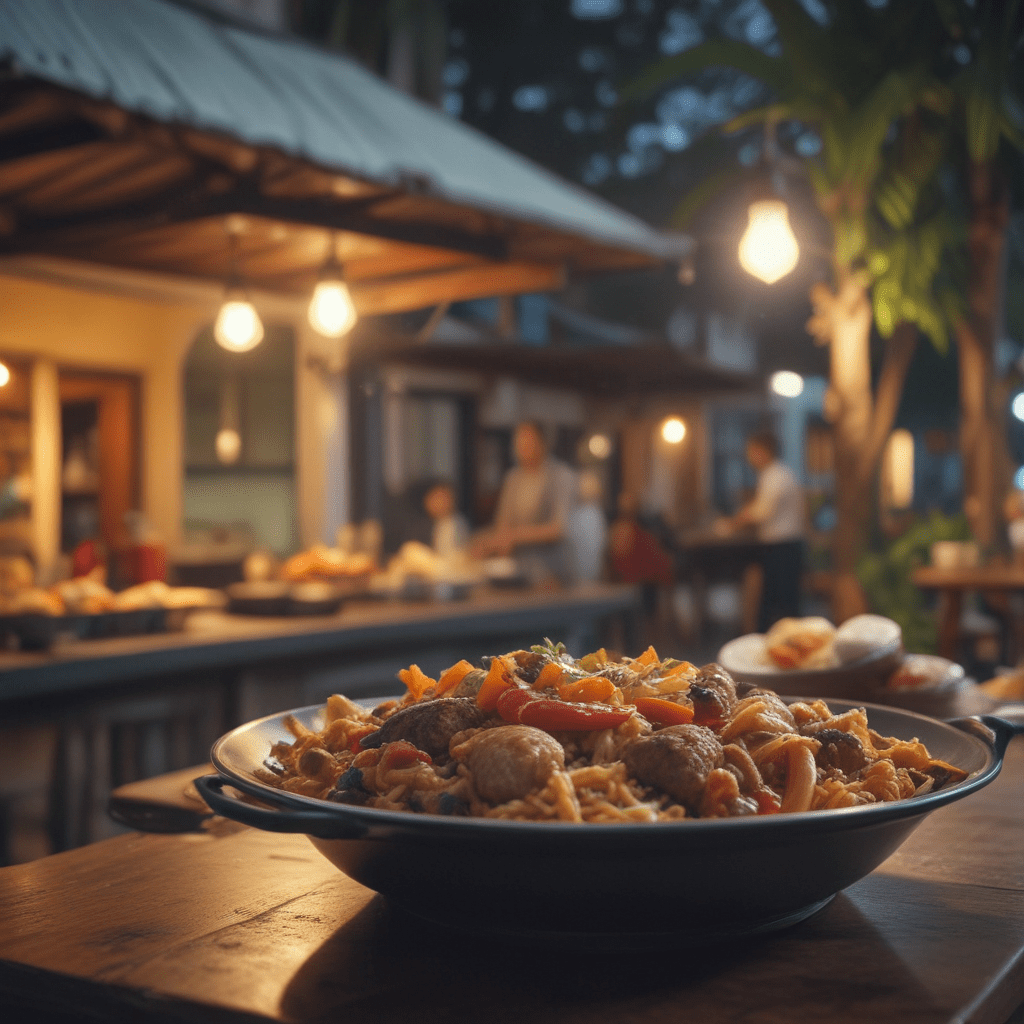
Camping Sites in Belarus
1. General Overview
Belarus, a landlocked country in Eastern Europe, offers a wealth of natural beauty and adventure opportunities. With its vast forests, sparkling lakes, and pristine rivers, Belarus is a haven for campers seeking a serene escape into nature. Camping in Belarus is a popular and affordable way to immerse yourself in the country's natural wonders while enjoying outdoor activities like hiking, kayaking, and fishing.
2. Top National Parks for Camping
Belarus boasts several national parks that provide excellent camping facilities. These include:
- Braslav Lakes National Park: Located in northern Belarus, this park is renowned for its picturesque lakes and diverse wildlife.
- Belovezhskaya Pushcha National Park: A UNESCO World Heritage Site, this park is home to Europe's last remaining primeval forest and the iconic European bison.
- Pripyatsky National Park: Covering a vast area of southern Belarus, this park is known for its pristine wetlands, rich birdlife, and abundant wildlife.
3. Private Campgrounds near Minsk
For those seeking convenience, several private campgrounds are located within easy reach of Minsk, the capital of Belarus. These include:
- Camping "Prilesny": Nestled in a picturesque forest, this campground offers cozy cabins, tent sites, and various amenities.
- Camping "Sosny": Located on the outskirts of Minsk, this campground features well-equipped tent sites, a swimming pool, and a restaurant.
- Camping "Lesnoe": Situated in a quiet forest setting, this campground provides spacious tent sites, a communal kitchen, and a playground for children.
4. Wild Camping Regulations
Wild camping is generally prohibited in Belarus, except in designated areas. Campers should seek permission from local authorities before setting up camp in undeveloped areas.
5. Tips for Choosing a Camping Site
When choosing a camping site, consider the following factors:
- Location: Choose a site that is close to amenities and activities but far enough from busy roads or noisy areas.
- Amenities: Ensure the site has essential amenities such as potable water, toilets, and fire pits.
- Safety considerations: Check for potential hazards such as fallen trees, unstable cliffs, or wildlife.
6. Best Time to Camp in Belarus
Belarus experiences a temperate climate with warm summers and cold winters. The best time to camp is during the summer months (June to August), when temperatures are pleasant and rainfall is minimal. However, spring (April to May) and autumn (September to October) can also be enjoyable times to camp, offering milder temperatures and fewer crowds. Avoid camping during the winter months (November to March), as temperatures can drop below freezing and snow cover can make access to campsites difficult.
7. Packing List for Camping in Belarus
When packing for a camping trip to Belarus, include the following essential items:
- Tent and sleeping bag rated for the expected weather conditions
- Camping mattress or pad
- Cooking equipment (stove, fuel, pots, pans, utensils)
- Food and water
- Camp chairs and a table
- Headlamp or flashlight
- First-aid kit
- Insect repellent
- Sunscreen
- Toiletries
- Rain gear
- Basic tools (multi-tool, knife, rope)
- Fire starter (if allowed)
- Bear spray (if hiking in areas with bears)
8. Activities for Campers
Camping in Belarus offers a variety of outdoor activities to suit every taste. These include:
- Hiking: Belarus has an extensive network of hiking trails, ranging from easy nature walks to challenging multi-day treks.
- Kayaking: Several rivers and lakes in Belarus provide opportunities for kayaking, offering a unique perspective on the country's natural beauty.
- Fishing: Belarus is a popular destination for fishing, with abundant fish species in its many rivers and lakes.
- Wildlife viewing: Belarus is home to a diverse range of wildlife, including deer, moose, wild boar, and wolves. Birdwatching is also popular, with over 300 bird species recorded in the country.
9. Local Customs and Etiquette
As a guest in Belarus, it is important to respect local customs and etiquette. These include:
- Being respectful: Belarusians are generally friendly and welcoming, but it is important to show respect for their culture and traditions.
- Learning basic phrases: Learning a few basic phrases in Belarusian can help you communicate with locals and show your respect.
- Observing local laws: Be sure to follow local laws and regulations, including those related to camping and fire safety.
- Protecting the environment: Avoid littering and respect the natural beauty of Belarus.
10. Tips on Planning a Camping Trip to Belarus
To ensure a successful camping trip to Belarus, follow these tips:
- Plan ahead: Choose your destination and book campsites in advance, especially during peak season.
- Pack appropriately: Pack all essential gear and clothing for the expected weather conditions.
- Be prepared for insects: Insect repellent is necessary, especially during summer months.
- Respect wildlife: Keep a safe distance from wildlife and observe them from afar.
- Leave no trace: Pack out all trash and leave the campsite as you found it.
FAQ
Q: Do I need a visa to camp in Belarus?
A: Citizens of most countries require a visa to enter Belarus, including for camping.
Q: Where can I find information on specific campsites in Belarus?
A: Several websites and guidebooks provide information on campgrounds in Belarus, including the Belarus Tourism website and Lonely Planet.
Q: Is it safe to camp in Belarus?
A: Belarus is generally a safe country for camping, but it is recommended to take precautions such as securing your campsite against wildlife and informing someone of your itinerary.
Q: What are the fees for camping in Belarus?
A: Camping fees vary depending on the campground. Contact the campground directly for the most up-to-date information.
Q: Can I make a campfire in Belarus?
A: Campfires are usually permitted in designated areas. Check with the campground or local authorities for specific regulations.
